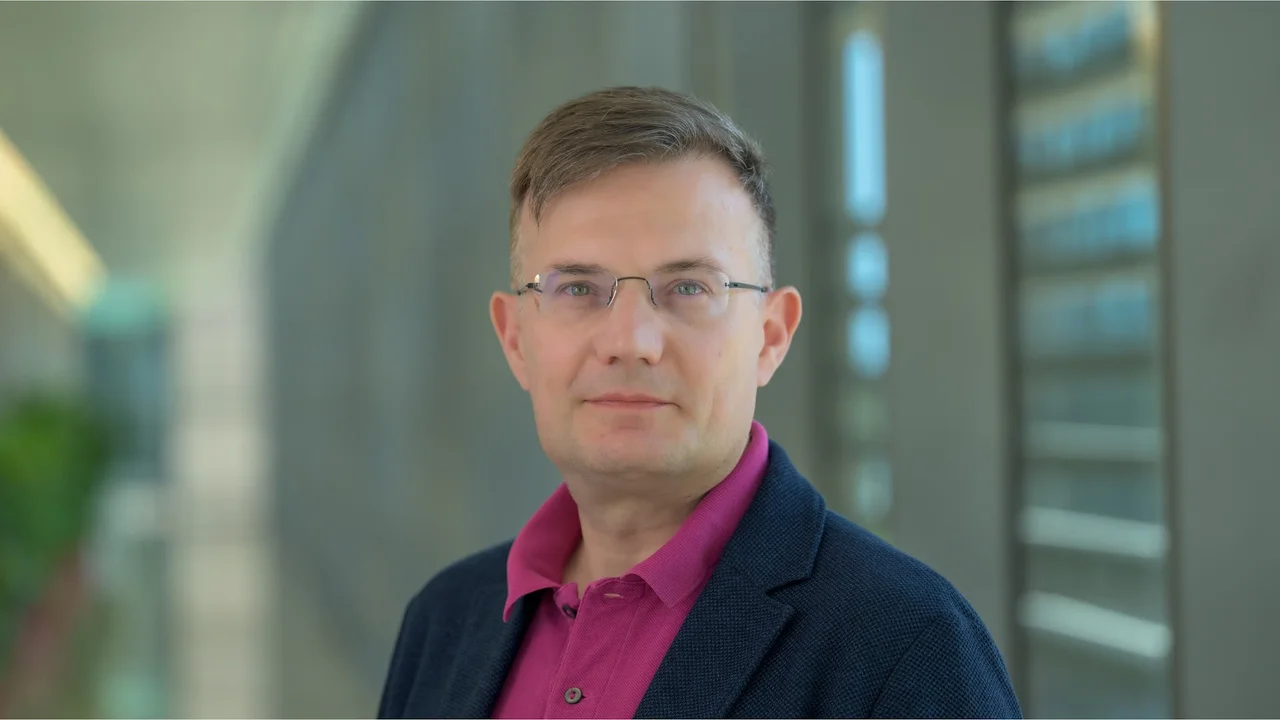
Rolf Krause
- Professor, Applied Mathematics and Computational Science
- Principal Investigator, Rolf Krause Research Group
applied mathematics Numerical Solution of Partial Differential Equations Finite elements machine learning Numerical Optimization medicine computational mechanics contact problems fluid-structure interactions cardiac simulation biomechanics geology Multiphysics Simulation HPC optimization Multigrid Domain Decomposition software development
Professor Rolf Krause is an experienced researcher and educator specializing in designing and analyzing algorithms to solve complex problems in scientific computing and machine learning.
Biography
Rolf Krause is a full professor in the Applied Mathematics and Computational Sciences Program at KAUST, with a career spanning academia, research and leadership. Before joining KAUST, he was a full professor at Università della Svizzera italiana in Lugano, Switzerland, where he directed the Institute of Computational Science from 2009 to 2020 and has served as co-director of the Center for Computational Medicine in Cardiology since 2014.
Beyond his research roles, Professor Krause has held notable leadership positions including a director of the interdisciplinary Euler Institute in 2021 and was the founding dean of the Faculty of Mathematics and Informatics at UniDistance Switzerland in 2022.
His commitment to academic service includes roles such as chairman of the examination board for mathematics studies and chairman of the board of finance for tuition fees at the University of Bonn from 2007 to 2009, as well as membership in the academic senate at USI from 2017 to 2021.
His work has earned numerous awards, including the Taylor & Francis Prize for Innovative Contribution to Theoretical Biomechanics/Biomedical Engineering and the MATH+ Distinguished Visiting Scholar recognition from the MATH+ Center in Berlin.
Professor Krause holds a Doctor rerum naturalium in Mathematics with distinction ("summa cum laude") from The Free University of Berlin, awarded in 2001. He also earned a Diploma in Mathematics with a minor in Economics from the same institution in 1996.
Research Interests
Professor Krause's research focuses on numerical simulation, machine learning, optimization, and data-driven approaches. A major focus of his research is the design and analysis of efficient and reliable algorithms that can be used to solve complex problems in scientific computing and machine learning.
Krause and his colleagues use mathematical understanding and computer science expertise to advance sustainable progress in many areas, from medicine to geology. They provide scientific software capable of solving complex, large-scale problems that can run on modern supercomputers such as KAUST’s Shaheen III.
Areas of expertise and focus
- Contact problems in mechanics
- Scientific software
- Multilevel and domain decomposition methods
- Optimization
- Iterative solution of large-scale systems
- Parallel computing
- High-performance computing (HPC)
- Coupled problems
- Finite elements
- Non-linear solution methods
- Neural networks
- Physics-informed neural networks
- Cardiac simulation
- Biomechanics
- Computational geoscience
Application areas
- Medicine
- Computational mechanics
- Contact problems
- Fluid-structure interaction
- Cardiac simulation
- Biomechanics
- Geology
- Complex and coupled multiphysics
Awards and Distinctions
- Taylor & Francis Prize for “Innovative Contribution to Theoretical Biomechanics/Biomedical Engineering”, Taylor & Francis, 2008
- Best Poster Award the Computer Science & Mathematics PASC 14, Platform for Advanced Scientific Computing (PASC), 2014
- Best Poster Award the Computer Science & Mathematics PASC 15, Platform for Advanced Scientific Computing (PASC), 2015
- Best Poster Award the Computer Science & Mathematics PASC 16, Platform for Advanced Scientific Computing (PASC), 2016
- Best Poster Award, The 12th IEEE Engineering in Medicine and Biology Society, 1990
- Best Poster, The Swiss Competence Center for Energy Research-Supply of Electricity Conference, 2019
Education
- Doctor rerum naturalium (Dr. rer. nat.)
- Mathematics, The Free University of Berlin, Germany, 2001
- Diploma
- Mathematics, The Free University of Berlin, Germany, 1996
Quote
It might sound straightforward, but the two most important things for success in research are interest and a good and solid education.
Research Achievements
- Non-convex Minimization and Domain Decomposition for Non-linear Large-scale Problems
- Nonsmooth Constrained Minimization, Quasi-Variational Inequalities, Multigrid, and Contact
Mechanics - Multilevel Training methods for Neural Networks
- Parallel Training methods for Neural Network
- Variational Transfer and Parallel Coupled Methods for Multiphysics Simulation
- Space-Time Discretization- and Solution Methods and Optimal Preconditioner
- Software Libraries for Scientific Computing and HP
- Machine Learning and Multilevel Approximations
- Application of ML in Life Sciences
- Computational Cardiology
- Fast Discretization and Solution Methods for Fracture Networks in Geophysics
Institutional responsibilities and academic service
- July 2007 to March 2009: Chairman of the examination board for the new Bachelor’s and Master’s Studies in Mathematics at the University of Bonn (UOB), Germany.
- July 2007 to March 2009: Chairman of the board of finance for tuition fees in Mathematics, UOB.
- 2009–2013: Director, master specialization “Applied Mathematics and Computational Science,” Università della Svizzera italiana, Italy (USI).
- 2009–2020: Director of the Institute of Computational Science, USI.
- 2013–2015: Vice-Director of the master program “Computational Science,” USI.
- Since 2014: Co-Director of the Center for Computational Medicine in Cardiology, USI.
- 2017–2021: Member of the academic senate of USI (two election periods).
- Since 2021: Director of the interdisciplinary faculty at the Euler Institute, USI.
- 2022: (Founding) Dean of the Faculty of Mathematics and Informatics at UniDistance Switzerland.
Questions and Answers
Why KAUST?
KAUST is an excellent environment for research (people and infrastructure). The working conditions are attractive. The University is also part of a larger vision and strategy built on research and innovation. Being a part of such an active environment is also stimulating.